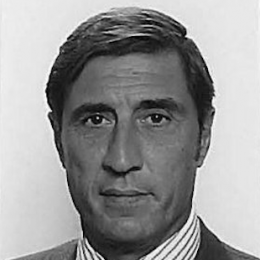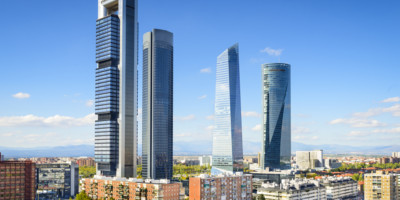-
Spain
Spain – The Spanish sentence on the European super league: everyone is happy
26 July 2024
- Antitrust
The Commercial Court No. 17 of Madrid has ruled in the SuperLiga case following the guidelines set by the CJEU in its decision of December 21 last year.
The lawsuit was filed by ESCL, an entity formed by Real Madrid and other soccer clubs to promote the SuperLiga, most of which abandoned the project due to pressure from fans and their governments against FIFA and UEFA, with RFEF and La Liga voluntarily joining the defendants.
As usually happens with elections, but not with sentences, everyone, plaintiffs and defendants, has shown their satisfaction with this ruling, which is not yet final, as it can be appealed before the Provincial Court of Madrid.
In brief, the proceedings involved whether the FIFA/UEFA regulations on the organization and authorization of soccer competitions and the management of the rights deriving from such competitions were in accordance with Community competition law, articles 101 and 102 of the TFEU.
The CJEU judgment of last December had already ruled that the regulatory rules of FIFA and UEFA relating to prior authorization and participation, which give these entities the power to prevent any competing company from accessing the market, constitute an abuse of a dominant position and infringe the provisions of Articles 101 and 102 TFEU, mainly because they are not accompanied by certain limits and controls guaranteeing transparency and objectivity in the decision not to authorize such international competitions, which allow the risk of abuse of a dominant position to be excluded.
Likewise, the Court of Justice, using the same arguments and about the exploitation rights deriving from sporting competitions, states that the FIFA and UEFA rules are contrary to the provisions of Articles 101 and 102 TFEU, since they attribute to themselves exclusive responsibility for the marketing of the rights in question.
Following the guidelines set by the CJEU judgment, the judgment of Madrid Commercial Court No. 17 partially upheld the lawsuit filed by ESLC against UEFA and FIFA. It declared that both organizations have abused their dominant position and are preventing free competition in the market by granting themselves the discretionary power to prohibit participation in alternative competitions and impose unjustified and disproportionate restrictions, conduct that infringes Articles 101 and 102 of the Treaty on the Functioning of the European Union (TFEU).
The ruling condemns FIFA and UEFA to cease the anticompetitive conduct sanctioned and prohibits them from repeating them in the future. It also condemns them to immediately remove all the effects of the anticompetitive actions that occurred before or during the duration of the lawsuit, which began on April 18, 2021, when ESLC announced the launch of the SupeLiga.
Finally, the judgment states that the content of the declarations issued by FIFA, UEFA and other entities (including the federations and leagues of England, Italy and Spain, some of whose clubs were part of the project) on April 18, 2021 (referred to in the lawsuit as the ‘Declaration’) in relation to the pan-European international competition project, also infringes Articles 101 and 102 TFEU.
It should be noted that the judgment expressly states that “inasmuch as the SuperLiga in the terms initially set forth in the lawsuit, i.e. in accordance with the initial project has been abandoned and discarded by the promoters themselves, the motions in relation thereto must likewise lapse; it is not possible to impose a prohibition or restriction in the abstract, i.e. to impose a prohibition in the future of any other project or modification of the one already presented”.
Based on this argument, the Judgment rejects the requests included in section f) of the lawsuit which, in summary, requested that FIFA and UEFA be ordered to refrain from any conduct, measure, or action or issue any statement that prevents or hinders in any way the preparation of the SuperLiga; and the commercial judge concludes by stating in this regard that the purpose of these proceedings is not “the authorization of any competition, but to lay the foundations to channel a system of free competition for the organization of soccer competitions”.
Thereafter, everyone is happy with the result; La Liga issued a statement stressing that the ruling does not endorse a project which, moreover, according to the same ruling, has been abandoned by its promoters. UEFA says that it is pleased to note that the judge has given a good and valid system of prior authorization for third-party competitions to be approved in accordance with UEFA’s authorization rules and has recognized the undoubted benefits of these rules for the soccer sporting system, concluding that “the judgment does not give third parties the right to develop competitions without authorization and does not refer to any future project or to any modified version of an existing project”.
The plaintiffs, too, are happy and content to proclaim that UEFA’s statutes and the aggressive measures taken to protect its monopoly have stifled innovation for decades. Clubs should not have to fear threats of sanctions simply for having ideas and having conversations. The era of monopoly is definitely over.
Rarely does one find that a judgment leaves all the litigants so happy and content, but that seems to be the case here. Or at least that is what all of them have been interested in communicating, when the harsh reality is, on the one hand, that the SuperLiga project as it was structured when the lawsuit started and FIFA/UEFA reacted furiously, is dead and buried, and on the other hand, that the happy world in which FIFA and UEFA regulated soccer and competitions as a private preserve, considered themselves immune and alien to ordinary justice and shared the money generated without being accountable to the Courts of Justice and threatened to expel or expel the rebellious spirits, has come to an end.





















